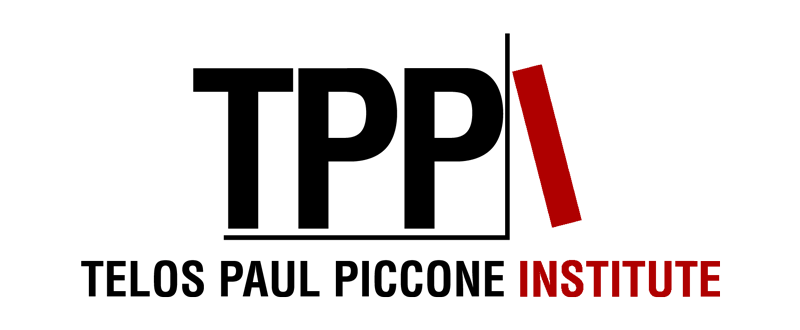The Concept of the People and Consumer Society
An International Symposium
Southwest University, Chongqing, China
September 18–21, 2015
Jointly organized by the Chinese Academy of Social Sciences, Beijing, Southwest University, Chongqing, and the Telos-Paul Piccone Institute, New York
View the conference program: English (PDF) or Chinese (PDF).
Read the conference description in Chinese here.
Conference Description
The concept of "the people" has long provided a political basis for understanding literature, art, and popular culture in China in terms of the relationship to class, political revolution, and the socialist progress of society. Accordingly, when, on October 15, 2014, Xi Jinping stated at the Beijing Literature Symposium that literature and art should serve the people, he was re-emphasizing the fundamental policy of the Chinese Communist Party since 1942. Yet, this new iteration of the formula occurs within a contemporary context in which the concept of the people poses a special problem because the parameters of cultural production have changed. In a market economy oriented toward consumer tastes, literature serves on the one hand to upgrade society's spiritual level and develop its aesthetic inclinations and on the other hand as a commodity that is subject to the rules of market exchange and consumer demand. Literary critics, including both Chinese and Western Marxists, have often warned that literature cannot become a slave to the market, but rather should expose the symbolic illusions of consumer society. Yet, it is also undeniable that consumer society transforms the structures of subjectivity in a way that can improve the aesthetic aspects of everyday life but can also affect the construction of political identity. If culture is to serve the people today, how are we to understand this phrase in the context of a market economy and consumer society?
While the Chinese Left is committed to class-based understandings of the people, the move toward consumer society and market economics has also led to the competing idea that the market itself constitutes a form of political legitimacy. Thus, Jürgen Habermas has argued in Structural Transformation of the Public Sphere that the development of a market economy in Europe contributed to the rise and legitimacy of a bourgeois public sphere that challenged feudal hierarchies. By contrast, critics of consumer society, such as Theodor Adorno, Herbert Marcuse, Guy Debord, and Jean Baudrillard, have pointed to the ways in which the development of a market-based, popular culture creates an illusory reality that diverts attention away from hegemonic structures and toward an affirmative vision of the social world. More recent discussions of the effect of market economics on political identity have focused on the changes brought by new media and the role that the internet has played, not only in changing the distribution channels for literature and culture, but also in establishing new kinds of political participation and alternative pathways for both identity construction and social critique.
This conference will seek to understand the transformation of the concept of the people with the advent of consumer society and its new modes of information exchange and forms of cultural distribution. By bringing together Chinese and international scholars, the conference seeks to approach these questions by comparing perspectives from differing political and economic contexts. To this end, the conference will address the following questions:
- 1. The concept of the "people" as both political subjects and consumers: What are the main determiners of political subjectivity in today's market economy? How might the market economy affect the structure of political allegiances? To what extent do market structures and internet distribution channels affect the ways in which political identity coalesces? To what extent does identity remain a moral, political, or spiritual construction rather than a consumerist one? How might the concept of class be understood in the context of consumer society?
- 2. The culture industry today: Are Horkheimer and Adorno's critique of the culture industry or Baudrillard's notion of the simulacrum still relevant in the world of the internet, with its new modes of distribution and possibilities for engagement? Are the structures they describe inherent to a market system for the production and consumption of culture or are they particular to Western capitalism? What does the affirmative character of culture described by Herbert Marcuse have to say about both Western and Chinese forms of cultural production today?
- 3. Art outside of a market context: How do extra-capitalist structures for art production and financing, such as religious or tribal arrangements, compare with market arrangements? How did Eastern and Western pre-capitalist patronage systems affect the production and distribution of art and literature? How do patronage and markets compare in terms of the way they channel and select artistic production?
- 4. The logic of consumer society: What are the primary social and political consequences of the rise of consumer society? Does the rise of consumer society and market economics have a consistent effect on social and political structures? Does the logic of consumer society change from one political system to another?
- 5. The aesthetic critique of consumer society: Is the critique of consumer society a general one or is it necessary to develop critiques that are specific to a political context? Do art and literature need to remain politically engaged in order to maintain a critique of hegemonic structures, or must they remain placeholders for a utopian future? How do these alternatives for art and literature change with shifting political circumstances and market conditions? Is the target of aesthetic critique primarily political decisions or economic structures?
- 6. Values in consumer society: Does the erosion of traditions and values necessarily occur in consumer society, or is this phenomenon more driven by political, spiritual, and social factors? What are the primary sources of spiritual values in consumer society?
Conference Description (Chinese)
学校举办“消费社会与文学的生产和传播”国际学术研讨会
9月19日至21日,由我校研究生院、文学院和中国社会科学院文学研究所、美国纽约提洛斯(Telos)研究院主办,重庆大学人文社科高研院协办的“消费社会与文学的生产和传播”国际学术研讨会在学校举行。来自美国包括加州大学在内的多所知名大学,奥地利克拉根福大学、印度尼赫鲁大学、韩国延世大学,中国社会科学院文学研究所等多个研究单位,对外经贸大学、北京第二外国语大学、北京语言大学、上海外国语大学、浙江大学、陕西师范大学、河南大学等国内外高校的30多位专家学者和50余名研究生参加研讨会。
我校副校长崔延强教授在会上致欢迎辞,并向与会者介绍了学校办学历史沿革和发展现状,对吴宓等学校前贤先哲和杰出校友袁隆平院士等做了介绍。中国社会科学院文学研究所理论室主任金惠敏教授介绍了会议发起由来,美国加州大学尔湾分校欧洲语言与研究系主任David Pan(潘则健)教授、纽约大学东亚研究系主任张旭东教授分别介绍了提洛斯研究院和重庆大学人文社科高研院发展情况,开幕式由我校文学院副院长肖伟胜教授主持。
会议共收到学术论文30多篇,汇聚了文学理论、文化研究、媒介传播及相关领域的国际国内专家和青年才俊。会议共安排了六场主题发言和一场提问交流,其中两场主要由博士研究生发言,大会工作语言为英语。
会议围绕“消费社会与文学生产和传播”这一主题,分五个方面进行了交流讨论,包括:消费社会的审美批判、文学在消费社会的精神引导作用、消费社会文学生产和传播的转型、文学在当代审美生产中的地位和作用、消费的文化政治学意味等。会议不仅彰显了我校师生和博士生研究生的水平和风采,也促进了与国内外其他院校同行的交流,使得与会人员能更深入认识当代社会的变迁、文学领域所面临的新的挑战,无疑有助于提升研究生的培养质量和国际化水平。
